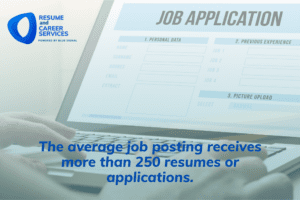It’s Time to Add Soft Skills to Your Resume; Here’s How.

When the average job posting receives more than 250 resumes or applications, you’re up against some stiff competition as a job seeker. Plus, the whole job search is a numbers game; some statistics suggest most candidates apply to 100–200 jobs before receiving an offer! Those numbers might make it sound like the odds aren’t in your favor, but there are some things you can do to improve your chances of success. One ever-important tool in your job-search toolbox is a resume, and it’s time to add soft skills to your resume so employers know your value.
What Are Soft Skills?
Soft skills are those intangible qualities that go beyond technical expertise. Some professions include a bevy of soft skills because they’re more people centric, while for others, you might be scratching your head to identify what those skills could be.
Generally speaking, soft skills are a range of personal attributes, such as communication, problem solving, leadership, teamwork, adaptability, and emotional intelligence. These skills are highly valued by employers as they contribute to a positive work environment, foster productivity, and drive successful collaborations. By sharing your soft skills with employers, you’re letting them know you have the ability to effectively navigate challenges, build strong relationships, and contribute to the overall growth of the organization. That means they play a large part in your candidacy, especially when you’re competing with hundreds of qualified applicants.
How to Identify Your Soft Skills
Before you start reworking your resume, it’s important to first know what soft skills you possess. This may require a bit of R&R: research and reflection. Research the positions that are of interest to you to see the kinds of skills they’re looking for. Good places to start are, of course, LinkedIn, Indeed, and Google Jobs. You’ll find soft skills listed throughout the job description, often in the “must have” or “requirements include” sections, but they can be anywhere.
Then, it’s on to reflection. Consider your experiences and assess the qualities that have helped you succeed in different situations. Think about times when you effectively communicated, demonstrated leadership, resolved conflicts, or worked well in a team. These moments will help you identify the soft skills you possess and want to highlight.
Add Soft Skills to Your Resume
After you have a list of your soft skills from your R&R, you’re ready to strategically incorporate them into your resume. To do that:
 Use the right keywords.
Use the right keywords.
This is where that research component comes in. Match the words in the job description to words on your resume to help your document be found by the ATS systems employers use. Your areas of expertise section is the ideal place to include soft skills. Be sure to mirror the job description and resist the urge to make up your own keywords. For instance, not many jobs list “patience” or “working with others,” but they may say “project management” or “cross-team collaboration.”
Boost your summary with soft skills.
Next to your accomplishments, your summary is the best place to add soft skills to your resume. Read the job description and write your summary to highlight how you have used those skills in the past. A well-crafted summary will immediately draw the attention of hiring managers and provide a snapshot of your strengths.
Showcase soft skills in your experience.
Moving down your resume, the next section is usually experience. This is a great area to include soft skills, since you likely used them all the time in your previous roles. Use key action verbs to highlight soft skills, such as “facilitated,” “negotiated,” and “coordinated.”
Incorporate them into accomplishments.
In addition to the other areas, what about adding soft skills to your resume in accomplishments? Did you use leadership, communication, or customer service skills to add value? As you think about times you’ve used these skills, transform them into accomplishments by adding the result of your efforts. Remember that an accomplishment is comprised of a challenge, action, and result.
If You’re Lacking Soft Skills
Some professions—and people—are more focused on the tactical aspects of their work. These are often our analytical friends, including engineers, computer professionals, and finance specialists. But we’ve run across people in other professions who struggle with figuring out what soft skills they possess, so if that’s you, don’t despair. Look outside of work, perhaps at places you’ve volunteered. Or are you the engineer who naturally becomes a mentor of the team? That’s probably because of your soft skills.
We Add Soft Skills to Your Resume (and Everything Else!)
You can compete with the other candidates when you are able to leverage a strong set of soft skills and share them on your resume. The talented resume writers at Resume and Career Services have decades of experience incorporating soft skills into resumes, along with all that technical experience. We have just the right option to help you get your resume in tip-top shape! Check out our options here.
